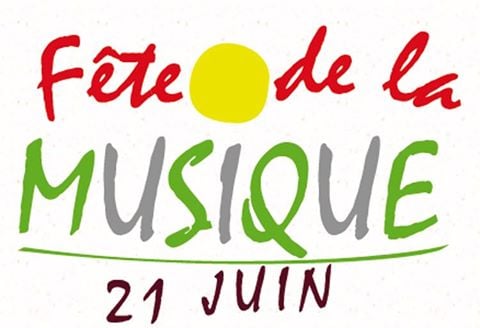This Christmas conversation in French and English comes with audio recordings. Please press on the audio players to listen to my slower enunciated French recording and then to the more natural, modern spoken French pronunciation.
Authentic French Christmas Conversation
Use the floating blue icon in the bottom right to hide/reveal the English translations below or just click here.
Slower Enunciated French
Modern Spoken French
Camille et Pierre, un de ses étudiants, parlent de leurs projets pour les fêtes de fin d’années.
Camille and Peter, one of her students, are speaking about their plans for the holidays.
Pierre
Qu’est-ce que vous faites cette année, pour les fêtes de fin d’années ?
What are you doing this year for the holidays?
Camille
Et bien comme d’habitude, on va fêter Noël avec la famille d’Olivier.
Well, as usual, we’re spending Christmas with Olivier’s family.
Pierre
Et ta famille ?
What about your family?
Camille
Ma famille n’est pas religieuse, et pour éviter les conflits entre belles-familles, ma mère a décidé il y a longtemps qu’on ne célébrerait jamais Noël le 24 ni le 25, mais un autre jour.
My family is not religious, and in order to avoid in-laws conflicts, my mother decided a long time ago that we would never celebrate Christmas on the 24th nor the 25th, but another day.
Pierre
En juin ?
In June?
Camille
Pourquoi pas :-) Généralement, on fête la Saint Nicolas, le 6 décembre. Ma famille est d’origine alsacienne, et c’est la tradition là-bas d’échanger les cadeaux le jour de la Saint Nicolas, et de préserver ainsi le côté purement religieux du jour de Noël.
Why not :-) Usually, we celebrate St Nicholas’ day, on the 6th of December (St Nick is the French Santa). My family originates from Alsace, and it’s the tradition to exchange gifts on St Nicholas’ day over there and to save Christmas day for strictly religious matters.
Pierre
J’aime bien cette idée.
I like that idea.
Camille
Oui, ça arrange tout le monde. Dans ma belle famille, c’est tout le contraire. Noël est LA fête familiale, et on respecte les traditions.
Yes, it makes everybody happy. For my in-laws, it’s exactly the opposite. Christmas is the quintessential family holiday, and they respect traditions.
Pierre
C’est à dire ?
What do you mean?

An audio novel for all levels. Explore Paris with modern, lively and realistic dialogues
Christmas French Conversation – Midnight Mass
Camille
Et bien, traditionnellement en France, on fait un grand repas après la messe de minuit, tard dans la nuit, qu’on appelle “le Réveillon”. Mais maintenant, de moins en moins de gens vont à la messe. Alors pour des raisons pratiques, on fête souvent Noël le lendemain : les enfants ouvrent les cadeaux le matin, et toute la famille se réunit pour un déjeuner de fête. Dans la famille d’Olivier, on fait les deux.
Well, traditionally in France, we have a big meal after the midnight mass, late into the night, that is called “the awakening”. But nowadays, fewer and fewer people attend the mass. Therefore, for practical reasons, we often celebrate Christmas the day after: Children open the presents in the morning, and the whole family gets together for the holiday luncheon. In Olivier’s family, they celebrate both.
Pierre
Les deux?
Both?
Camille
Ben oui. On se réunit le 24 au soir, on fait un dîner simple mais sympa, et puis quelques fois on va tous ensemble à la messe de Noël. Moi, je ne suis pas pratiquante, mais c’est plus pour la tradition que j’y vais. Je me souviens de messes de minuit vraiment magiques, avec des crèches humaines, des défilés d’enfants déguisés en anges, de la musique et plein de chants et de bougies partout…
Yes. We get together on the 24th in the evening, we have a simple but nice dinner, and sometimes we all attend Christmas mass. I don’t practice religion, but it’s more for the traditional aspect that I go. I remember really magical midnight mass, with live nativity scenes, parades of children costumed as angels, music and many songs and candles everywhere.
Christmas Conversation in French – The French Christmas Meal
Camille
Et puis c’est le 25 qu’on fait notre réveillon: on se met sur son 31, on mange du foie gras, des huîtres, du saumon fumé, une dinde aux marrons ou un jambon cuit, et en dessert, une bûche de Noël. Et bien sûr, on boit du bon vin et du champagne.
Then, it’s on the 25th that we do the traditional French Christmas meal: we all dress to the nines, we eat foie gras, oysters, smoked salmon, a turkey with chestnuts or a roasted ham, and for dessert, a yule log. And of course, we drink good wines and champagne.
Pierre
C’est quoi “une bûche” ?
What’s a yule log?
Camille
C’est un gâteau en forme de bûche, qui fait référence à la vieille tradition de faire brûler une bûche chargée de symboles pendant 3 jours autour de Noël. Il y a plein de traditions comme ça, souvent régionales, mais qu’on ne respecte plus vraiment aujourd’hui.
It’s a cake shaped like a log (traditional French Christmas cake), which refers to the antique tradition to burn a symbolic log for 3 days around Christmas. There are many traditions like this one, often regional, but that we don’t quite follow any longer nowadays.
Pierre
Et les cadeaux ? Est-ce que Leyla croit au Père-Noël ?
What about the presents? Does Leyla believe in Santa?
Camille
Oui, Leyla a 5 ans et c’est une petite fille très moderne: elle nous a dit l’autre jour qu’elle voulait écrire un email au Père Noël… Je peux te dire qu’on a bien rigolé !!
Yes, Leyla is 5 and is a very modern little girl: the other day, she told us she wanted to write Santa an email… I can assure you we had quite a laugh!
Pierre
J’imagine !
Yes, I imagine!
French Conversation About Christmas – Presents 🎁
Camille
Enfin, pour les cadeaux, traditionnellement c’est le 25 au matin. Le Père Noël passe pendant la nuit, et dépose les cadeaux dans les souliers posés autour de l’âtre. Bon, mais maintenant qu’il n’y a souvent plus de cheminée dans les maisons ou appartements, on place généralement les cadeaux sous le sapin. On laisse les enfants ouvrir un ou deux cadeaux le matin, et on attend que la famille arrive pour ouvrir tous les cadeaux… ou quelque chose comme ça… enfin quoi, on s’arrange pour faire plaisir à tout le monde et laisser une place au Père Noël.
Et toi Pierre, tu fais quoi cette année pour les fêtes ?
Then, for the presents, traditionally it’s in the morning of the 25th. Santa comes during the night and leaves the presents in shoes displayed around the hearth. Well, but nowadays since there are no more fireplaces in houses or apartments, presents are usually placed under the Christmas tree. We let the children open one or two presents in the morning, and we wait for the whole family to get here to open all the presents… or something along those lines… in other words, we do our best to please everybody and leave a small place for Santa. What about you Pierre, what are you doing this year for the holidays?
Pierre
Moi, je ne suis pas du tout religieux, alors je pars en vacances pour faire du ski. Et Leyla, elle a des vacances ?
I am not religious at all, so I’m going on a ski trip. What about Leyla? Is she going to be on vacation?
Camille
Oui, comme tous les écoliers, elle a deux semaines de vacances. En général, en France, le 25 décembre et le 1er janvier sont fériés. Mais si ça tombe un jeudi ou un mardi, les Français font le pont.
Yes, like all students, she has a 2 weeks vacation. In general, in France, December 25th and January 1st are official holidays. But if it happens to fall on a Thursday or a Tuesday, then the French take the in-between days off.
Pierre
Qu’est-ce que ça veut dire ?
What does it mean?
Camille
Ça signifie qu’on ne travaille pas le vendredi ou le lundi, et on relie le jour férié au week-end.
It means we don’t work on Friday or Monday, and ‘bridge’ the holiday to the weekend.
French Christmas Dialogue – Merry Christmas!
Pierre
Ah, d’accord. C’est cool ! Bon, Camille, je vois que c’est bientôt la fin de la leçon, alors je voulais te souhaiter à toi et ta famille un joyeux Noël et une bonne année.
All right. Sweet! OK, Camille, I can see it’s almost the end of the lesson, so I wanted to wish you and your family a Merry Christmas and happy new year.
Camille
Merci Pierre. Je te souhaite également de passer d’excellentes fêtes de fin d’années, et que tous tes voeux se réalisent en 2025.
Thank you, Pierre. I too wish you great holidays as well, and may all your wishes come true in 2025.
If you enjoy this kind of bilingual story, check out French Today’s downloadable French audiobooks: French Today’s bilingual novels are recorded at different speeds and enunciation, and focused on today’s modern glided pronunciation.









Comments